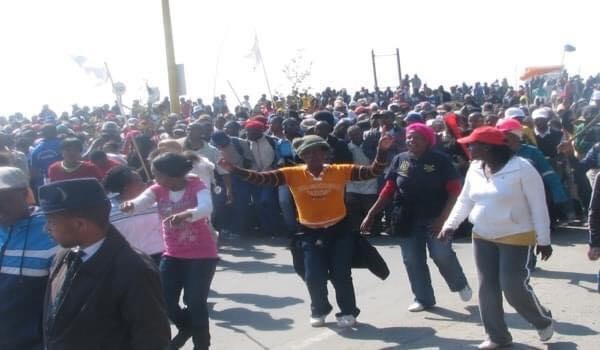The implementation of a state-of-the-art automated snowmaking system at Afriski mountain resort not only maximises the production of snow when conditions allow but also reduces energy consumption and combats the effects of global warming.
Afriski Mountain Resort is an ‘all year, all mountain’ destination in the heart of the Drakensberg-Maluti Mountains, in Lesotho. It is one of two ski resorts in Southern Africa and attracts ten thousand visitors over the winter season each year.
The manufacturing of snow to augment natural snowfall is commonplace at ski resorts around the world, as natural snowfall patterns have become unpredictable due to rising temperatures.
According to the technical director at Afriski, Graham Joyce, the European Alpine ski season today is more than a month shorter than it was in the 1970s. But, producing snow is energy and water intensive and resorts are turning to renewable energy and better weather prediction to improve efficiency.
In a statement released this week, Joyce noted that in the past Afriski has relied heavily on skilled snowmakers monitoring wind condition, temperature and humidity to inform which snowmaking equipment to use at different locations on the 1500m of ski slopes. Despite these efforts, the manual snowmaking system required water to be pumped into the snow making lines using 900kW of energy and a lag time of 30 minutes for the lines to be filled with water before snow could start to be produced.
“Ideal snowmaking conditions of below -2.5°C wet bulb only last so long, and the time lost with the manual system resulted in significantly reduced snowmaking output. The dry bulb temperature refers to the ambient air temperature. It is called ‘dry bulb’ because the air temperature is indicated by a thermometer not affected by the moisture of the air. Wet bulb temperature can be measured by using a thermometer with the bulb wrapped in a wet cloth.
“The wet bulb temperature is always lower than the dry bulb temperature. Due to this we are able to make snow in temperatures of above zero. This motivated Afriski to invest in an automated snowmaking system installed by overseas specialist MND Group. Each piece of snowmaking equipment now comprises an automated weather station which optimises water and air flow ratio into the fan to maximise snow production based on accurate temperature readings.
“Coupled with the automated system, is the use of a newly built high-altitude dam above the resort to gravity feed water into the snowmaking lines. When the temperature is right and -2.5°C wet bulb is recorded, the automated snow guns can start-up immediately and produce up to 400 tonnes of high-quality snow per hour. A night of snowmaking could cover 1km of ski slope at a depth of 20cm. In previous years, we were only able to utilise 40 percent of the available snowmaking hours due to the delay in start-up and temperature fluctuations during a night of snowmaking,” Joyce indicated.
He added that, with the new automated snowmaking and gravity pumping system, Afriski hopes to increase snowmaking hours by 50 percent and double the volume of snow we can produce each winter.
Water is pumped back up to the dam during off-peak times, resulting in 500kWhr of energy saving per hour of snowmaking during peak demand. Considering snow is produced approximately every third night during the winter ski season, this equates to a significant cost saving.
Snowmaking allows resorts to open their winter season on predetermined dates and is essential for operating a winter sports resort in Africa.
“Snowmaking also benefits the local community in creating employment in the snowmaking division, and supporting businesses that supply the hospitality trade,” Joyce concluded.








